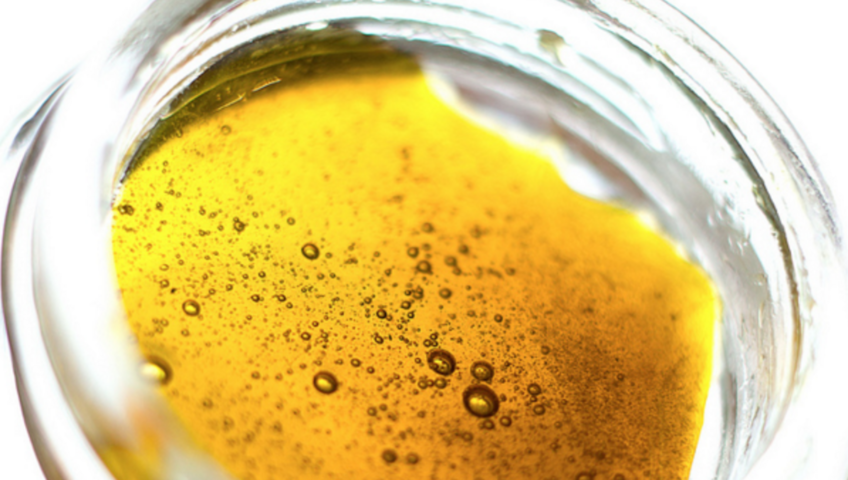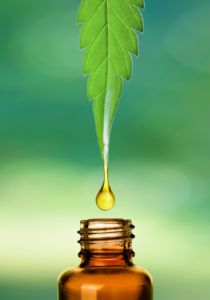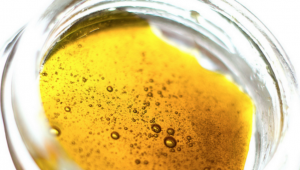CBD Oil vs. Hemp Oil – What’s the Difference?

Comparing CBD vs. Hemp Oil
“There are at least 50 shades of green in the emerging industry of medical cannabis.” So says my good friend who has a great deal of experience and is well-read on the subject of hemp oil.
I concur. Seems like there is so much to learn, it is like drinking from a fire hose.
On top of that, common misconceptions or points of confusion regarding cannabis derived oil abound. One example is found in naming conventions. There are hundreds of different products calling themselves either:
- CBD oil
- Hemp oil
- Cannabis oil
- Marijuana oil
- …or some other creative variations you might see.
 No wonder the average consumer is confused!
No wonder the average consumer is confused!
Another difficulty is that laws differ between states, counties, sometimes even cities. For this reason, becoming well versed in the world of cannabis can be likened to learning a new language that constantly changes due to constantly evolving legalities & regulations.
In this post, the goal is to define the difference between hemp and cannabis.
“Hemp” technically is the cannabis sativa plant, bred to have very little THC. The compound THC is the psychoactive compound found in the cannabis sativa plant. Psychoactive meaning it is the compound that gives the “high” feeling experienced by consumers. In order to be classified as hemp, the plant must contain less than .3% THC.
The exciting thing about hemp is that it can be selectively cultivated to have varying levels of its different compounds. For example, hemp with up to 40% Cannabidiol (CBD) is successfully grown and harvested. As a reminder, CBD is the non-psychoactive compound, which actually neutralizes THC, in hemp. Cannabidiol has been shown to have a powerful regulatory effect on the endocannabinoid system, which helps support the nervous system and immune function in the body, to name just a couple benefits.
What is CBD oil?
There is not one broad based clinical definition of what CBD oil is, and many products label themselves as CBD oil. Ultimately, however, it is an oil extracted from the cannabis plant, containing varying levels of the compound CBD.
How to Buy the Best CBD Oil
 In order to ensure you are purchasing a high quality brand of CBD oil, it is advisable to consider the following:
In order to ensure you are purchasing a high quality brand of CBD oil, it is advisable to consider the following:
- Point of Purchase – You would most likely purchase CBD oil at a dispensary. Most oils sold in states where cannabis is legal for medical or recreational contain THC. The exception is when the label specifies the oil is derived from HEMP. The higher the ratio of THC, the more likely you will experience psychocative effects. If you do NOT want to feel high from consuming CBD oil, find a product with the low levels of THC and the high levels of CBD. Rick Simpson Oil (aka Phoenix Tears), a strong cannabis concentrate, can be made with any strain of cannabis, so know beforehand of the percentages of THC, so you can prepare for the effects.
- Source of Hemp – Because hemp is a remediation plant, it uptakes toxins from the soil. If you prefer to avoid ingesting pesticides and other agricultural chemicals, then you must avoid oils grown non-organically, or in locations with weak regulation and enforcement for organic standards (China), or in places where the soil has been contaminated with pesticides in the past 30 to 50 years.
- Bioavailability – how quickly is the CBD absorbed and made available to cells in your body? The higher the bioavailability of a CBD oil, the faster and easier your body can put the ingested CBD to work.
What is Hemp Oil?
Hemp oil, or hempseed oil, as it is also commonly called, on the other hand, can be bought at the supermarket. Progressive chefs and nutrition enthusiasts love it because it is wonderful source of omega 3 fatty acids, similar to flax oil, with a mild nutty flavor. It is extracted from the nutritious hemp seed and therefore contains only trace amounts of THC. Hemp oil is also used in body products such as skin moisturizer and hair conditioner.
But There’s A Twist
 The United States Department of Health (DOH) successfully patented the cannabinoids (including CBD) found in the plant cannabis sativa in 2003. U.S. Patent No. 6,630,507 includes the potential use of non-psychoactive cannabinoids — the group of those chemical compounds found in the plant species cannabis sativa. Since DOH technically owns the term “CBD”, it can restrict the use of those letters on labels. As DOH has this power, some CBD producers have taken to labeling their products simply as “hemp oil”. Typically, the health supplement is in a completely different package than you would find the cooking cooking or topical ingredient.
The United States Department of Health (DOH) successfully patented the cannabinoids (including CBD) found in the plant cannabis sativa in 2003. U.S. Patent No. 6,630,507 includes the potential use of non-psychoactive cannabinoids — the group of those chemical compounds found in the plant species cannabis sativa. Since DOH technically owns the term “CBD”, it can restrict the use of those letters on labels. As DOH has this power, some CBD producers have taken to labeling their products simply as “hemp oil”. Typically, the health supplement is in a completely different package than you would find the cooking cooking or topical ingredient.
Your best bet is to Read The Label so you know for sure. Phytocannabinoid concentration, typically measured in milligrams, should be listed in the ingredients listed on the bottle. This number is one element in deciphering the strength of the oil and the dosage you should take. The other element to be aware of is bioavailability ratios. The higher bioavailability, the faster your body and brain absorb and utilize the positive attributes of CBD.
It is important to note that The Farm Bill of 2014 protects the right to consume hemp products containing less than .3% THC. Section 7606 of the Farm Bill defines industrial hemp as “the plant Cannabis sativa L. and any part of such plant, whether growing or not, with a delta-9 tetrahydrocannabinol concentration of not more than 0.3 percent on a dry weight basis.”
Hemp, or oil derived from industrial hemp, has absolutely no use as a recreational drug and even those containing high amounts of CBD are legal in all 50 states, as long as the amount of THC is less than point three percent (0.3%).
We hope you enjoyed learning about the differences between hemp oil and CBD oil. If there is one major takeaway from this post, it is to be aware that there are huge differences of quality in hemp and CBD oils. Check labels and ask questions!
If you found this article informative, please like and share with a friend!

Leave a Reply